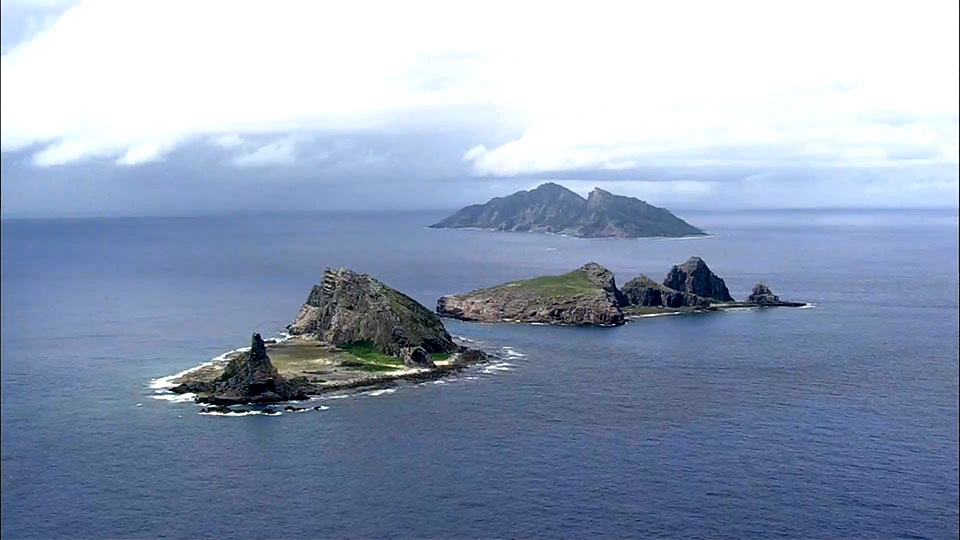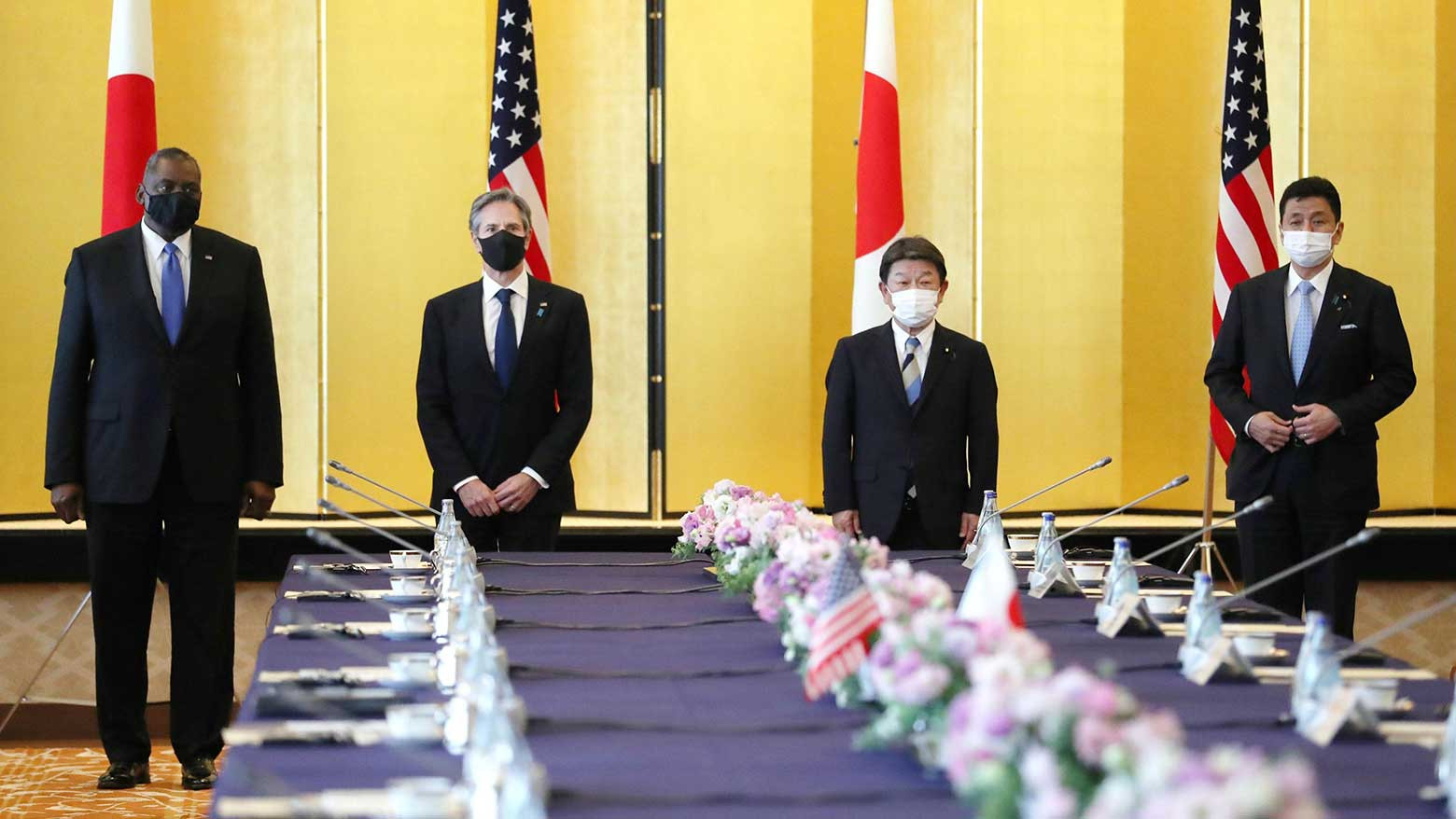US Secretary of State Antony Blinken and Defense Secretary Lloyd Austin traveled to Tokyo this week to meet their Japanese counterparts, Foreign Minister Motegi Toshimitsu and Defense Minister Kishi Nobuo. It was the first ministerial face-to-face since US President Joe Biden took office in January.
Motegi told a joint press conference that Japan and the US are united in their opposition to China’s attempts to change the international status quo, including military activity in the East and South China Seas. He added they shared serious concerns about China's maritime policing law.
The new law authorizes Chinese government vessels to use weapons in waters Beijing considers to be under its jurisdiction. That’s a concern for leaders in Tokyo, since China has been increasing its presence in waters around Japan’s Senkaku Islands, which China claims as its territory.
During Tuesday’s session, the US made it clear that the islands fall within the scope of Article Five, a section of the Japan-US Security Treaty that obliges it to defend territories under Japan's administrative control.
Austin says upholding the status quo is a common goal: “Japan shares US concerns about China's destabilizing actions. We know that competing in today's shifting global dynamics can only be done through the spirit of teamwork and cooperation, which are the hallmarks of our alliance with Japan. Our alliance remains resolute and resilient, because of our shared values and history of shared sacrifices.”

The meeting has drawn a sharp response from Beijing. Speaking before the Japan-US press conference, Chinese Foreign Ministry spokesperson Zhao Lijian said the two countries shouldn't point fingers: “The Japan-US alliance … shouldn't target or damage the interests of any specific country.”
An alliance that “matters deeply”
China is a common topic at the so-called "2+2 talks" of Japanese and US foreign and defense chiefs, but it’s rare that they are so explicit about it in their post-talks statement. This latest one, though, says China’s actions that do not meet with the existing international order are posing political, economic, military and technical challenges to the Japan-US alliance.
The Biden administration views China as the only country with the power to seriously challenge the international order, and it says it plans to take a strong stance against Beijing's human rights abuses and military buildup.
It also plans to review its supply chains for semiconductors and rare earths, and increase procurement from Japan and other allies. The aim is to reduce dependence on China and lessen potential security risks.
That helps to explain why the US foreign and defense chiefs chose Japan as their first foreign destination. The US wants to boost ties with a major Asian ally, so it can deal with China from a position of strength.
As Blinken put it, “This alliance matters deeply to the United States, and to Japan. And after today, I feel confident in saying it is stronger than ever."
Japan’s Prime Minister Suga Yoshihide is set to travel to Washington next month where he will be the first foreign leader to hold an in-person summit with President Biden.

